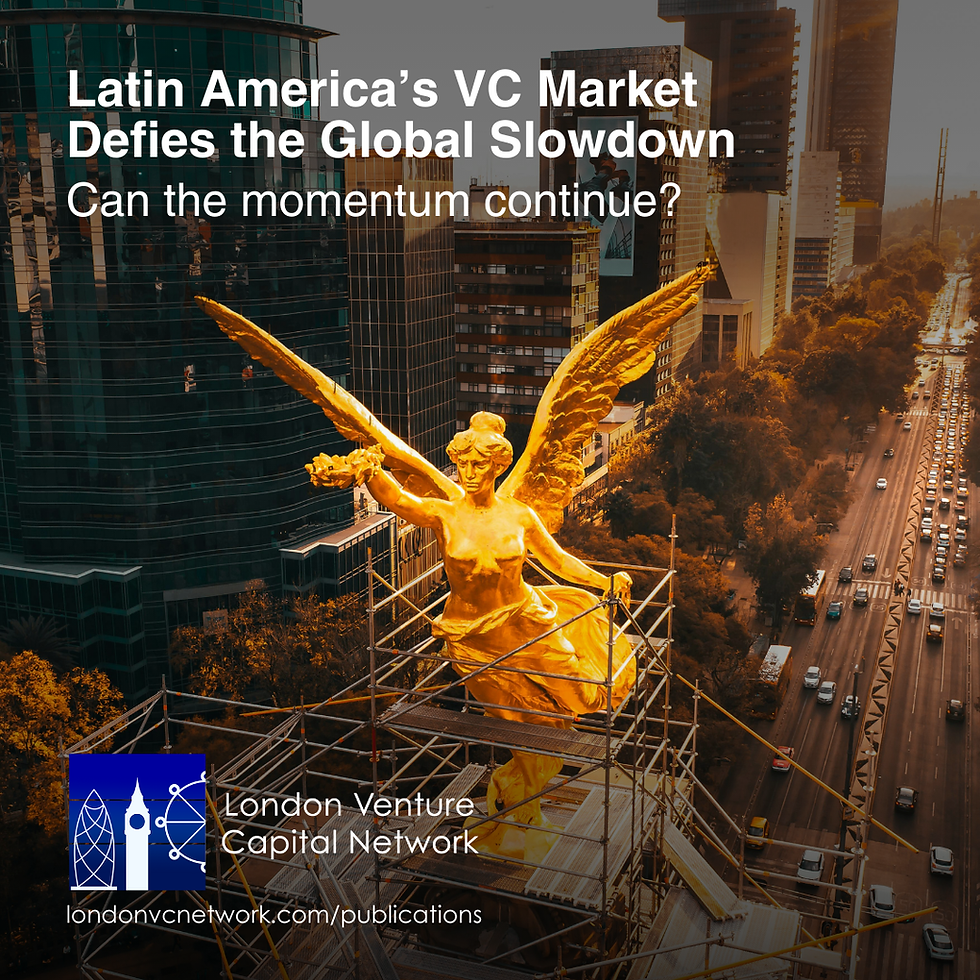The End of Illiquidity? Robinhood’s Tokenised Stocks Challenge the VC Status Quo
- Sep 23, 2025
- 4 min read
Could tokenised stocks finally solve the liquidity problem in private markets?

Written by: Ilya Vencjuns | Research Contributor, London Venture Capital Network
As with most things these days, it all started with a tweet.

OpenAI was unhappy with Vlad Tenev, the founder and CEO of Robinhood, after a statement in June 2025 that he wanted to tokenise public equities, and more importantly for OpenAI, the plan to tokenise private stocks in fast-growing startups. This statement came at a time when global regulators and a range of crypto exchanges were actively working on efforts to tokenise shares in public and private companies, promising a new wave of financial democratisation and opportunities for founders searching for capital. But what exactly is tokenisation, and how might it change the future of private markets, the calculus of VC funds, and why was OpenAI so unhappy with Robinhood?

Tokenisation is the process of creating a token that is recorded on a decentralised blockchain, with these representations of assets either backed by direct equity in a company or other structures like a SPV (special purpose vehicle) giving general exposure to that asset. The trading of these tokens, backed by real-world assets, takes place on decentralised blockchains, with transactions verified and logged on a ledger. Once an interesting dream by blockchain advocates, tokenisation has become a reality with the backing of major financial institutions, friendly regulators, and investors.
The key selling point of tokenisation has been its ability to open up greater liquidity to private markets. The restriction of purchasing secondaries and investments into private companies to only accredited high-net-worth individuals, while protecting retail investors, has come at the cost of liquidity in private markets, with early employees and VCs having to wait for years to return capital to their LPs. Tokenised assets open up private markets to retail investors and those who do not have accreditation to invest in private companies, with McKinsey projecting that tokenised assets would represent over $2 trillion by 2030. In 2024, EU-based VCs experienced a liquidity desert compared to past years; exits hit 858, down 37% from a high in 2021, according to Sifted, alongside a disappointing year for IPOs and large acquisitions. Tokenisation may be an answer to unattractive EU-based public markets and longer waits for liquidity events by EU-based startups.
Innovation has not just been confined to the EU and US, with tokenisation and tokenised secondaries seen as an option to strengthen markets in Africa. Many startups in Africa suffer from having weak national capital markets, with high levels of volatility and limited options for funding. Formally regulated tokenised shares in private companies and other assets like real estate and public equities could be an answer to this. Notably Kenya has been implementing a trial of a DLT (distributed ledger technology) token pilot scheme through the Kenya Digital Exchange, whereby assets have been tokenised. Unlocking this liquidity could drastically change the way African founders and VCs view both exits and fundraising.
In response to these developments, a range of fintechs and crypto exchanges around the world have started to roll out tokenised shares, with Robinhood introducing OpenAI and Space X tokens in June 2025. Crucially, the creation of tokenised stocks is permissionless, needing no approval or agreements by the companies that are being tokenised, which created this tension with OpenAI. Likewise African fintechs spotting a gap in the market have started to introduce products that tokenise both public equities from international markets, as well as the tokenisation of national markets. With these products lowering the barrier to entry for retail investors based in Africa.
In Europe, it is still early days for the regulation of this form of investment, with ESMA (the EU securities regulator) being concerned about the development of tokenised stocks. While some early pilots into ledger technology to enable access to private markets have been explored, there is still uncertainty surrounding how or if tokenised stocks will be fully opened up to retail investors. For London-based VCs and family offices, these recent developments could represent an opportunity for greater liquidity and the chance to diversify away from traditional M&A or IPOs as methods of returning capital to LPs. Yet the ability of early and later stage companies to instantly sell tokens backed by company equity, or to use this as a form of fundraising would drastically flip the script on the traditional model of VC.
The base assumption behind VC as an asset class has always been its illiquid nature, investments are high risk, yes, but a tiny minority will 100x in value and exit through a liquidity event. If these early adopters of tokenisation continue to see traction, the power law as we know it might no longer be relevant. As employees, founders, and VCs will no longer be forced to hold and live with high risk, instead having the options to sell.at the early-stage risk for founders is high, but founders have limited options to exit or de-risk by selling equity, forcing them to wait for years to exit.
Introducing greater exit opportunities for founders and early employees might place strain on relations between startups and their investors. While tokenisation could offer well needed opportunities for liquidity and opening up investment to retail investors, at the same time the decreasing barriers to exiting a position will change incentive models for founders and investors alike.
Read more insights at londonvcnetwork.com/publications



